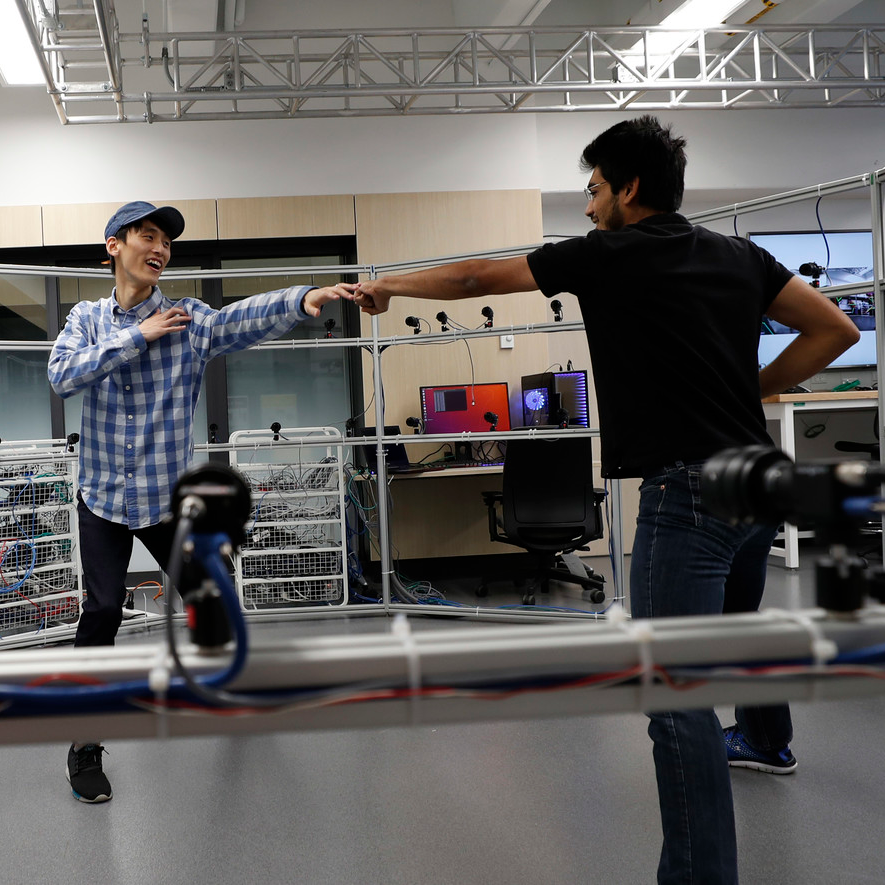Celebrating two years of the Minnesota Robotics Institute

As we approach the second anniversary of the Minnesota Robotics Institute (MnRI), we want to highlight the accomplishments of our students in the M.S. in Robotics program. This graduate program fulfills one of the tenets of the MnRI mission—intertwining high-quality research with high-quality education.
The Master’s of Science in Robotics degree is an interdisciplinary program requiring 31 credits, including completion of a capstone project. Each student is required to take one foundational course from each of the following key areas:
- Cognition (e.g., artificial Intelligence, knowledge representation, planning, decision-making)
- Perception (e.g., computer vision, sensing)
- Robot modeling and control (e.g., kinematics, dynamics, locomotion, manipulation)
The remaining credits include the capstone project (3–6 credits) or thesis (10 credits), with the rest coming from a list of elective courses in participating departments, including the Department of Computer Science & Engineering, that span several different colleges.
Contrary to other similar programs, our M.S. degree is heavily focused on research. The first cohort (in academic year 2020-2021) included 30 students, and they came from all over the world. Students from this cohort now work or are doing internships at a variety of companies including HistoSonics, Sentera, Honeywell, Medtronic, Amazon, Northrop Grumman, and the Minnesota Department of Transportation, and others are active participants in local robotics start-ups.
Some notable facts about the U of M's M.S. in Robotics program:
- Junlin Wu is the first recipient of our M.S. in Robotics degree. He graduated in Spring 2021.
- More than 70% of students in the first cohort have a cumulative GPA that exceeds 3.6.
- There were 140 applicants and 45 students who committed to attend the M.S. program as part of the second cohort in academic year 2021-2022.
- More than 15% of students are from underrepresented groups.
- Students are playing key roles in several research groups at the University and have also been taking active roles in outreach activities by working with local high school students and groups.